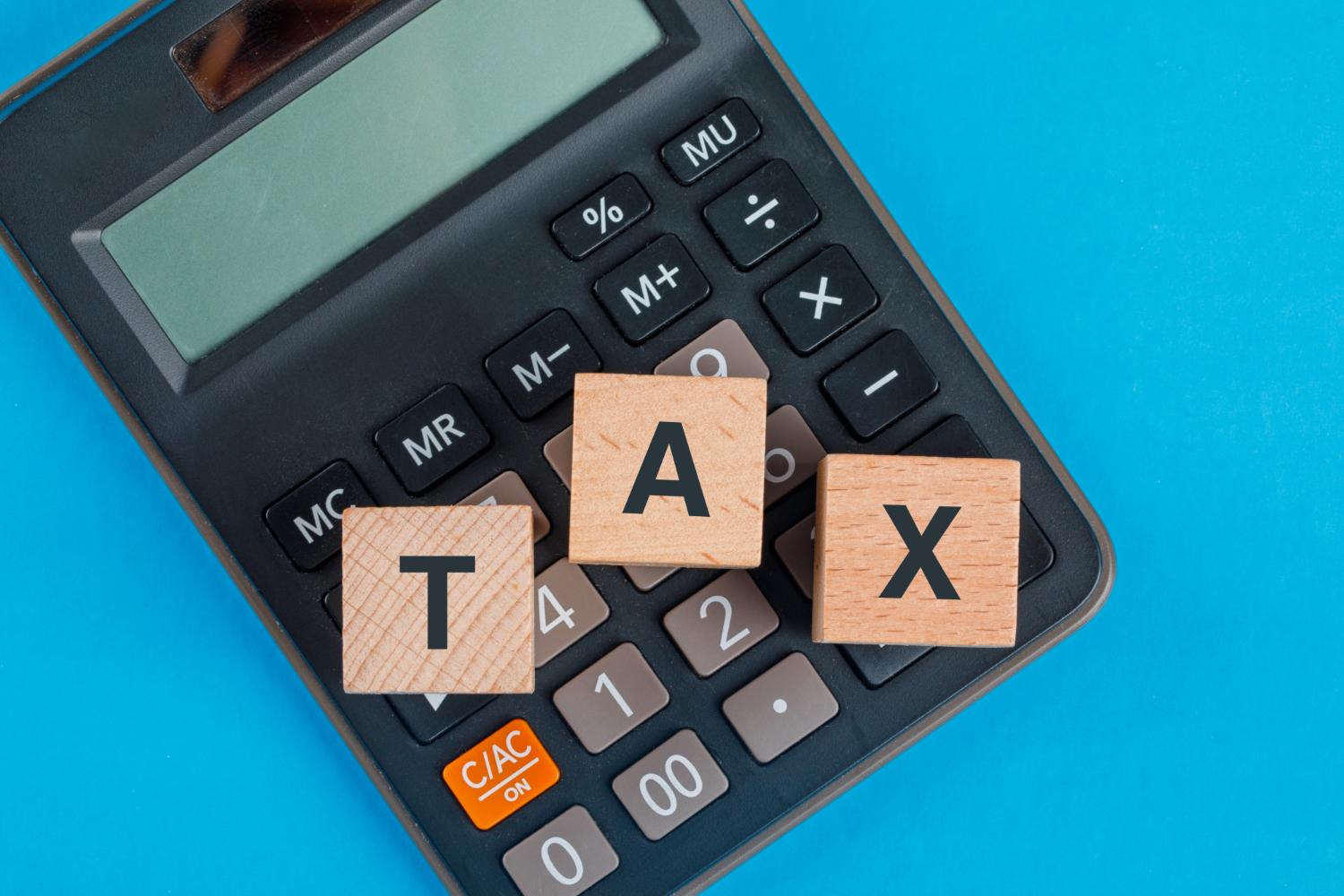
Written by FirmNL-content
Taxation is an essential cornerstone of any nation’s financial framework, and the Netherlands is no exception. Whether you’re earning income or managing a business in the Netherlands, taxation is an obligation that cannot be overlooked. Taxes in the Netherlands are instrumental in upholding a high standard of living and supporting robust public services. These taxes come with strict rules and procedures that must be followed with no mistakes.
However, understanding the Dutch tax system is more than about compliance; it’s a gateway to making well-informed financial decisions, optimizing tax advantages, and actively contributing to the vibrant Dutch economy. So, if you’re a Dutch resident seeking to optimize your tax obligations or an expatriate intending to start a company in the Netherlands, this article will educate you on the workings of the Dutch tax system.

This section provides an overview of the various types of taxes in the Netherlands and how they apply to both individuals and businesses.
Personal Income Tax is the cornerstone of the Dutch tax system. It applies to Dutch nationals and expatriates, encompassing their global income. The Dutch tax system categorizes income into three distinct boxes, each subject to specific schedules and unique tax rates. These boxes collectively determine an individual’s taxable income.
Dutch Personal Income Tax employs progressive tax rates, which means that the tax burden increases proportionally with your income. As you earn more, your tax rate rises. The Netherlands features multiple tax brackets, each associated with its corresponding tax rate. This design ensures that individuals with lower incomes are placed in lower tax brackets and pay reduced tax rates, while those with higher incomes are subject to higher tax brackets with progressively increasing tax rates.
In the Netherlands, the sale of goods and services is subject to a consumption tax known as Value Added Tax (VAT). In Dutch, it is referred to as BTW (Belasting Toegevoegde Waarde).
The Dutch Value Added Tax system operates on a straightforward but effective principle—it taxes the value added at every stage of the production and distribution of goods and services.
Unlike conventional sales tax, which is imposed only at the final point of sale to consumers, VAT is collected at each stage of the supply chain. Businesses collect VAT on their sales and subsequently remit it to the government. The VAT paid on purchases can be offset against the VAT collected, resulting in the net amount remitted to the tax authorities.
This system ensures that tax is distributed proportionally throughout the production and distribution process, from manufacturers to wholesalers to retailers. Ultimately, the end consumer bears the final burden of the tax. The Netherlands employs multiple VAT rates, each applied to different goods and services. These rates encompass:
The standard VAT rate in the Netherlands generally applies to most goods and services. While the specific percentage may vary depending on the nature of the product or service, it typically hovers around 21%.
In addition to the standard rate, the Netherlands offers a reduced VAT rate of 9%, which is a lower percentage applicable to specific categories of goods and services. These reduced rates are typically applied to essential items like food, books, pharmaceuticals, and public transportation.
Certain goods and services may be subject to a 0% VAT rate. This means that VAT is still included in the transaction, but the rate is zero. Exports often fall under this category.
Corporate Income Tax is another vital component of the Dutch tax system. It is levied on the profits of businesses operating in the Netherlands, whether they are domestic entities or foreign companies with a presence in the country.
The standard rate for Dutch Corporate Income Tax stands at 25%. Nevertheless, this rate may vary based on the company’s size, income, and activities. The types of corporate taxes include:
In a bid to foster entrepreneurship and support small businesses, the Netherlands offers a reduced corporate tax rate for companies with profits below a certain threshold. As of 2022, the reduced rate is 15% on earnings up to €245,000. Profits exceeding this threshold are taxed at the standard rate.
The Innovation Box regime incentivizes research and development endeavors. Companies involved in qualifying innovative activities can benefit from a reduced tax rate of 9% on their eligible profits.
Companies engaged in international operations may find the Dutch tax system favorable, thanks to various incentives such as the participation exemption, which alleviates the tax burden on foreign profits.
The Netherlands offers several special tax regimes, primarily geared toward promoting innovation and encouraging international business activities. For instance, the Innovation Box regime provides substantial tax benefits to companies involved in qualifying innovative activities.
Property tax in the Netherlands, known as Onroerendezaakbelasting (OZB), is primarily imposed by municipalities. This tax is calculated based on the value of immovable properties, including residential and commercial real estate. Several factors play a role in determining property tax:
Property tax rates in the Netherlands vary between municipalities. Typically, they are expressed as a percentage of the assessed property value. Property owners receive annual tax bills from their local municipalities based on these rates.
Property owners should be well-informed about the specific property tax rates in their municipality and understand the factors that influence the assessment of their property’s value.
It’s important to note that property tax is a local tax, and the revenue generated from it is frequently allocated to fund municipal services and infrastructure.
Living and working as an expatriate in the Netherlands entails unique tax considerations. The Dutch tax system takes into account the distinctive circumstances of expatriates.
As an expatriate, you must understand the concept of tax residency in the Netherlands. Your tax residency status determines the portion of your income subject to Dutch taxation.
In general, you are considered a tax resident if you spend more than 183 days in the Netherlands within a calendar year or if your primary center of economic and social life is in the Netherlands. Being a tax resident means that your worldwide income is subject to Dutch tax laws.
Double taxation can occur when an expatriate is subject to taxation in both their home country and the Netherlands, either because of their residency status or the type of income they receive. The Netherlands has established tax treaties with numerous countries to prevent double taxation. Expatriates subject to taxation in both the Netherlands and their home country can benefit from these treaties. These tax treaties play a crucial role in alleviating this potential burden.j
Here’s how these treaties help expatriates avoid double taxation:
Tax treaties typically include provisions to determine an individual’s tax residency. These rules help expatriates understand where they should pay taxes. Generally, individuals are considered residents of the country where they have a permanent home or spend the majority of their time.
Tax treaties often specify how each type of income should be taxed and which country has the primary right to tax it. In cases where double taxation may occur, these treaties provide mechanisms to alleviate the burden. This can include tax credits, exemptions, or other relief methods to ensure that an individual’s income is not taxed twice.
Tax treaties outline specific categories of income and define which country has the right to tax them. For instance, income from employment, dividends, interest, and royalties may be subject to specific rules and tax rates based on the treaty.
Filing taxes in the Netherlands can be accomplished through various channels, and the method you choose depends on your circumstances. Common methods include:
The Dutch tax authority, Belastingdienst, offers an online platform (MijnBelastingdienst) where individuals and businesses can electronically file their taxes. People may believe that this is the most convenient and efficient method for many taxpayers. However, it’s important to note that you need to apply for a DigiD account first, and the program is available only in Dutch. Also, this is not always the best option for business owners. It is advisable to work with tax professionals in the Netherlands to avoid mistakes that can lead to penalties.
Many individuals and businesses opt to hire a Dutch tax advisor or accountant to assist them with tax compliance. Professionals can ensure accurate and timely submissions. The Netherlands boasts numerous Dutch tax advisors with expertise in foreign tax and expat matters and one of such is FirmNL.

Taxation in the Netherlands can be overwhelming, and adhering to ever-evolving regulations is essential. Dutch Tax Advisors are financial experts well-versed in the complexities of the Dutch tax system. They offer invaluable guidance to individuals and businesses, helping them minimize tax liabilities, take advantage of available incentives, and ensure precise tax filings.
These professionals provide a range of services, from tax planning and compliance to handling international tax matters. Their expertise spans personal income tax, corporate tax, VAT, and more, making them indispensable partners for those seeking to optimize their financial strategies in the Netherlands.
Whether you are an individual or own a business in the Netherlands, Here are 7 compelling reasons to consider hiring a Dutch tax advisor:
Dutch tax advisors possess a deep understanding of the intricacies of the Dutch tax code. They stay abreast of ever-evolving regulations, deductions, and exemptions, ensuring you remain compliant while minimizing your tax burden.
Tax advisors tailor strategies to your unique financial situation, enabling you to make the most of available incentives and credits. This personalized approach maximizes your tax efficiency.
Tax regulations can be complex, and missteps can lead to penalties or legal issues. Tax advisors help you navigate these treacherous waters, reducing the risk of costly errors.
Managing taxation demands time and meticulous attention to detail. Engaging an advisor frees you from the hook of complex tax paperwork, allowing you to focus on other aspects of your life or business.
If you have international financial interests, a tax advisor can assist in managing cross-border tax complexities, ensuring you don’t overpay due to double taxation.
In the unfortunate event of an audit or dispute with tax authorities, a tax advisor provides essential support, assisting you in responding appropriately and safeguarding your interests.
Beyond immediate tax savings, tax advisors can assist you in charting a course for a financially secure future, guiding you to make informed decisions that benefit you in the long run.
Are you struggling to navigate the intricate web of Dutch tax regulations? Do you need expert guidance to ensure you’re meeting your tax obligations while optimizing your financial situation? Look no further!
FirmNL is your trusted tax specialist in the Netherlands, equipped with the knowledge and experience to help you streamline your tax affairs and minimize your tax liability. Our team is here to provide you with top-notch services and support you as a business owner. Contact us today to get started.
Comprehending the Dutch tax system is vital for both individuals and businesses. It encompasses various tax types and considerations, with particular attention to expatriates’ tax residency, treaties, and property tax implications. The filing and payment process involves specific deadlines, methods, and payment options. Ultimately, a thorough understanding of Dutch taxes is essential for responsible financial management, compliance, and well-informed decision-making. Seeking professional advice from a Dutch tax advisor when necessary is recommended for navigating the intricate tax landscape effectively.
Discover the full range of services we can offer with a free quote.